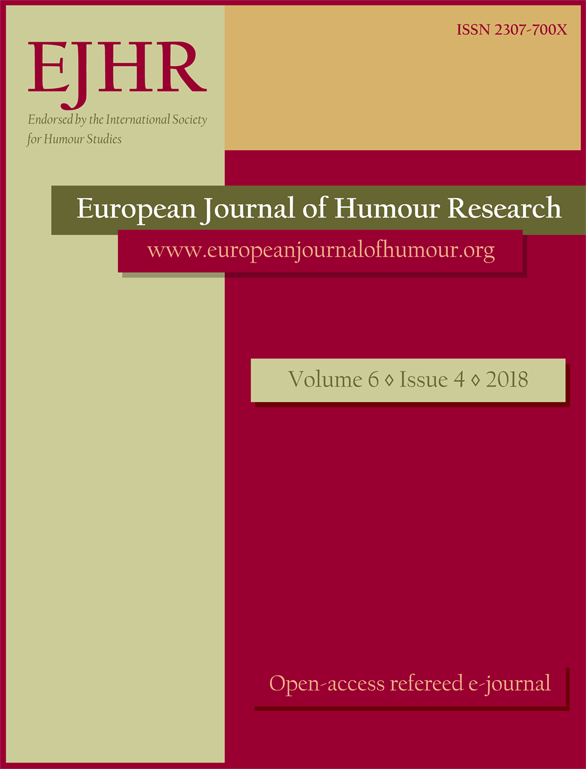Phonological distortion as a humorous strategy in
Folarin Falana’s comedy skits
Phonological distortion as a humorous strategy in
Folarin Falana’s comedy skits
Author(s): Ronke Eunice AdesoyeSubject(s): Anthropology, Social Sciences, Theatre, Dance, Performing Arts, Language and Literature Studies, Fine Arts / Performing Arts, Customs / Folklore, Theoretical Linguistics, Applied Linguistics, Sociology, Phonetics / Phonology, Pragmatics, Sociolinguistics, Descriptive linguistics, Cultural Anthropology / Ethnology, Culture and social structure
Published by: Krakowskie Towarzystwo Popularyzowania Wiedzy o Komunikacji Językowej Tertium
Keywords: phonological distortion; phonological processes; humour; Folarin Falana (Falz the Bahd Guy)
Summary/Abstract: Various studies exist on the social functions of humour and such studies have been carried outin diverse fields that range from the humanities to the sciences. In linguistics, specifically,research shows that humour has been studied from the perspectives of syntax, pragmatics, andsemantics; moreover, there is a dearth of studies on the creation of humour throughphonological processes. Therefore, this study aims to investigate humour and how it isachieved using phonological processes. The study engages mainly qualitative methods ofanalysis. Five comedy skits were purposively selected from Folarin Falana’s (Falz the BahdGuy) eleven collections. These were chosen on the basis of their internet popularity amongNigerians; this popularity was determined on the basis of the rates of downloading the skits.McGraw & Warren’s (2010) Benign Violation Theory was used to account for thephonological violations in the comedies. The various phonological processes that wereviolated include liaison, deletion, insertion, monophthongisation, coalescence, and vowelstrengthening. It is argued that the phonological distortions are deliberately made to achievehumour in these Nigerian comedies, especially when the high educational level of the artist isconsidered. Also, there anti-Anglicism and pro-Nigerianism in the data as the artist identifieshimself with Nigeria(ns) and creates a niche for himself in the entertainment industry usingthe phonological peculiarities among Nigerians’ language use, especially the Yoruba tribe. Healso creates different personalities to project different messages which are not only peculiar toNigeria but to the world, using these personalities to portray people’s feelings and views ofthe world and how these influence their attitudes.
Journal: The European Journal of Humour Research
- Issue Year: 6/2018
- Issue No: 4
- Page Range: 60-74
- Page Count: 15
- Language: English

